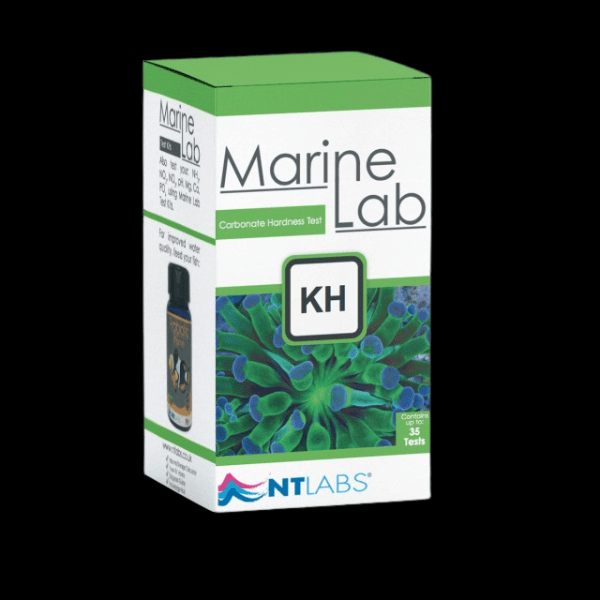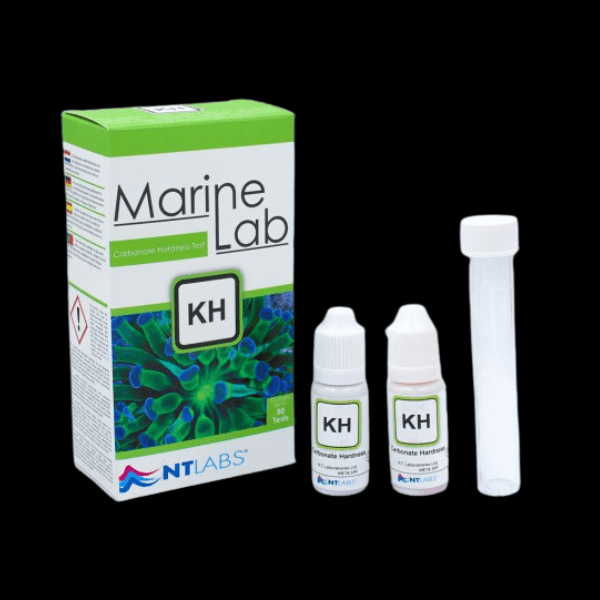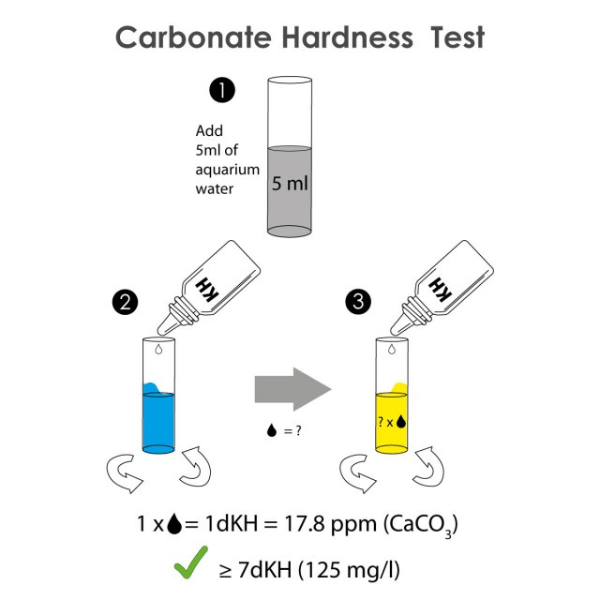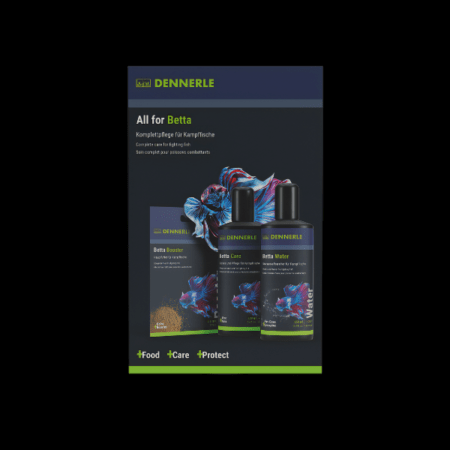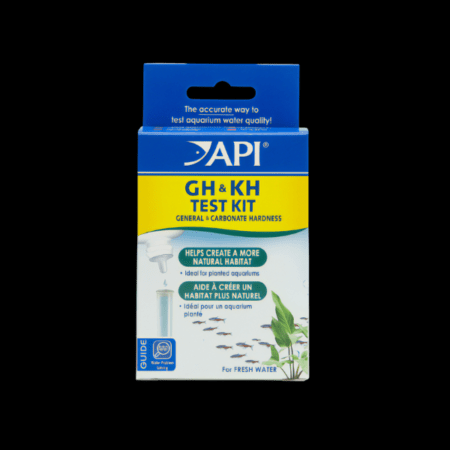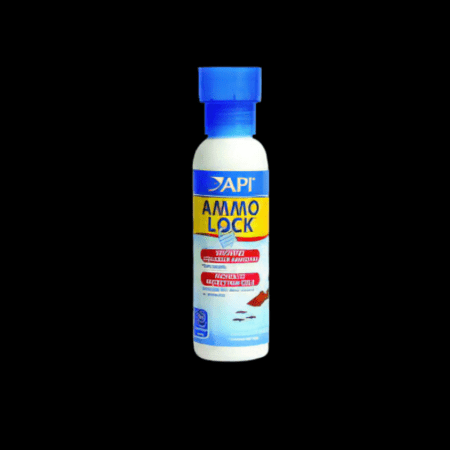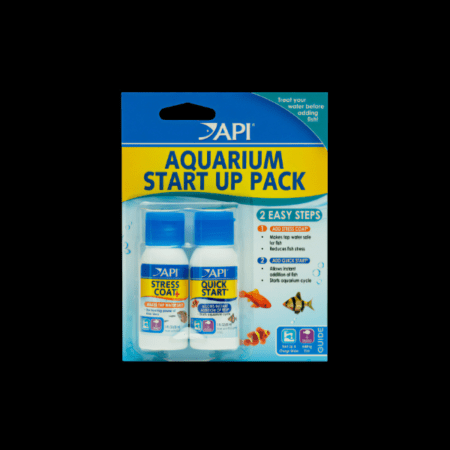Description
NT Labs Marine Lab Carbonate Hardness Test
What is KH?
KH, or carbonate hardness, describes the pH buffering capability of water. Water with the correct KH will resist changes to the pH, ensuring a stable environment for your aquarium’s inhabitants. KH measures the concentration of carbonates and bicarbonates dissolved in the water which provide the pH-stabilising effect. In a reef aquarium, these are also an essential component for reef-building corals and other invertebrates with calcium-based exoskeletons.
Why test for KH?
As marine water ages, acidic processes in the aquarium consume the KH causing it to decrease. Furthermore, many marine invertebrates assimilate carbonates removing them from the water column. If the KH becomes too low, the pH of the water is at risk of significant fluctuations. It is these changes that cause stress to fish and make them more susceptible to disease. The KH should be tested frequently to ensure that it remains at the correct level to provide a stable environment for your aquarium’s inhabitants.
What is the correct level of KH?
In natural seawater, the dissolved carbonate hardness is normally 7 dKH (or °KH), but you may wish to maintain a level between 7 and 14 dKH depending on your method of running the aquarium.
What to do if the KH level is wrong?
If your KH is low in your aquarium, use Marine Buffer Powder to safely increase the KH up to the desired level. Monitor the KH frequently to determine how quickly the KH decreases over the period of a week and adjust to frequency of water changes or addition of buffer to maintain a stable KH. If the KH in your aquarium is high, a water change with a good quality salt will help reduce the KH, but changes to KH should be carried out slowly to avoid stressing the inhabitants.
How to test for KH?
- Add 5 ml of water to be tested into the test tube provided. The middle mark on the test tube indicates 5 ml
- Add 1 drop of the KH reagent to the test tube and mix – the colour of the sample should turn blue.
- Continue to add the KH reagent, one drop at a time with mixing until the colour of the sample changes from blue to yellow, counting each drop.
- When the colour changes to yellow, stop the test.
- Each drop of KH reagent used, including the first drop, indicates 1 dKH. For example, if the sample turns yellow after 7 drops, the KH is 7dKH.
- To convert from dKH to mg/l (as CaCO3), multiply the dKH by 17.8.
